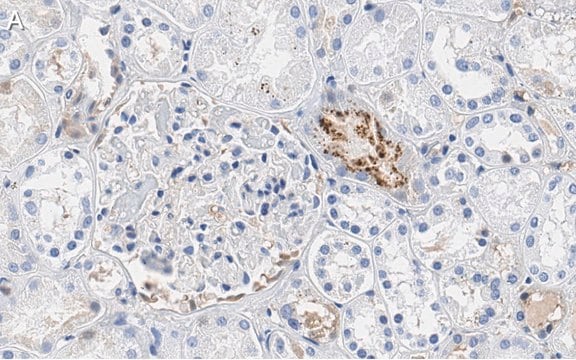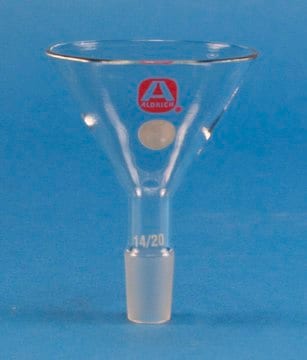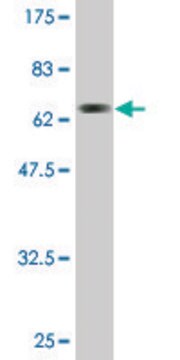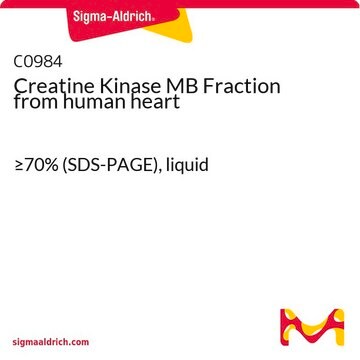General description
Low-density lipoprotein receptor-related protein 6 (UniProt: O75581 also known as LRP-6) is encoded by the LRP6 gene (Gene ID: 4040) in human. LRP-6 is a disulfide-linked homodimeric, single-pass type I transmembrane protein, which is a component of the Wnt-Fzd-LRP5-LRP6 complex that triggers beta-catenin signaling. LRP-6 is widely co-expressed with LRP5 during embryogenesis and in adult tissues and its levels decrease upon Wnt3A stimulation. It is synthesized with a signal peptide (aa 1-19), which is cleaved off in the mature form. LRP-6 has an extracellular domain (aa 20-1370), a short helical transmembrane domain (aa 1371-1393), and a cytoplasmic tail (aa 1394-1613). LRP-6 contains five PPPSP motifs that play a central role in signal transduction following phosphorylation and activation of Wnt signaling pathway. Dual phosphorylation of cytoplasmic PPPSP motifs sequentially by GSK3 and CK1 is shown to be essential for AXIN1-binding, and subsequent stabilization and activation of beta-catenin via preventing GSK3-mediated phosphorylation of beta-catenin. Upon Wnt signaling, LRP-6 is shown to undergo a cycle of caveolin- or clathrin-mediated endocytosis and plasma membrane location and it undergoes phosphorylation, aggregation, and co-localization with AXIN1 and GSK-3beta at the plasma membrane in LRP-6 signalsomes. It is released from the endoplasmic reticulum following palmitoylation. On two sites near the transmembrane domain. However, in the absence of palmitoylation mono-ubiquitination retains it in the endoplasmic reticulum. Threonine1479 of LRP-6 is phosphorylated by casein kinase I (CK1) and this phosphorylation is facilitated by TMEM198. (Ref.: Liang, J., et al. (2011). Mol. Cell Biol. 31(13); 2577-2590).
Specificity
This rabbit polyclonal antibody specifically detects LRP6 phosphorylated on Threonine 1479.
Immunogen
Epitope: unknown
KLH-conjugated linear peptide corresponding to 10 amino acids surrounding phosphorylated Threonine 1479 of human Low-density lipoprotein receptor-related protein 6 (LRP6).
Application
Anti-phospho-LRP-6 (Thr1479), Cat. No. ABS1063, is a rabbit polyclonal antibody that detects Low-density lipoprotein receptor-related protein 6 phosphorylated on Thr 1479 and has been tested for use in Western Blotting and Peptide Inhibition Assay.
Research Category
Signaling
Western Blotting Analysis: 1 µg/mL from a representative lot detected phospho-LRP-6 (Thr1479) in membrane fraction extract of 293T cells co-transfected with N-terminal flag-tagged hLRP6 and Xenopus l. Casein Kinase 1g1.
Peptide Inhibition Analysis: A 1:500 dilution from a representative lot was used with membrane fraction extract of 293T cells co-transfected with N-terminal flag tagged hLRP6 and Xenopus l. Casein Kinase 1g1 for peptide block analysis.
Quality
Evaluated by Western Blotting in membrane fraction extract obtained from Wnt3a medium treated mouse embryonic fibroblasts.
Western Blotting Analysis: 1 µg/mL of this antibody detected phospho-LRP-6 (Thr1479) in membrane fraction extract obtained from Wnt3a medium treated mouse embryonic fibroblasts.
Target description
~220 kDa observed; 180.43 kDa calculated. Uncharacterized bands may be observed in some lysate(s).
Physical form
Affinity Purified
Format: Purified
Purified rabbit polyclonal antibody in buffer containing 0.1 M Tris-Glycine (pH 7.4), 150 mM NaCl with 0.05% sodium azide.
Storage and Stability
Stable for 1 year at 2-8°C from date of receipt.
Other Notes
Concentration: Please refer to lot specific datasheet.
Disclaimer
Unless otherwise stated in our catalog or other company documentation accompanying the product(s), our products are intended for research use only and are not to be used for any other purpose, which includes but is not limited to, unauthorized commercial uses, in vitro diagnostic uses, ex vivo or in vivo therapeutic uses or any type of consumption or application to humans or animals.









